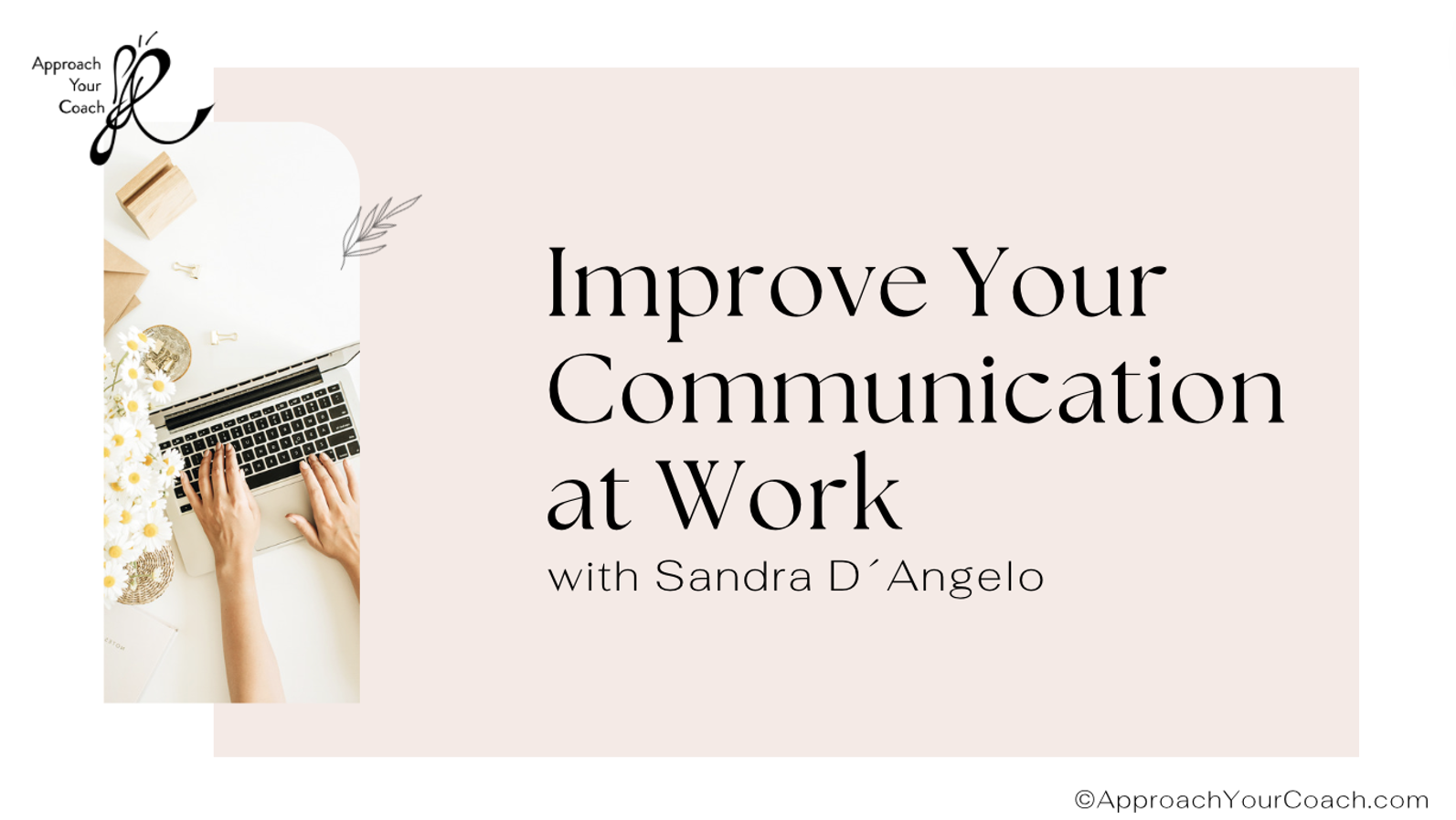Workplace Communication Hacks: Strategies for Success

Professional coach Sandra D’Angelo leads the course. She will guide you through overcoming the most common communication pitfalls in the workplace. This course explores the reasons behind workplace communication mistakes, how they impact you and other employees, and all the necessary strategies to improve your communication skills by addressing the “why,” “how,” and “what” of effective communication, this course will enable you to have professional interactions with your employees and boost your career success.
Target Audience
This course is suitable for professionals seeking to improve their communication skills, including:
- Employees at all levels
- Team Leaders and Managers
- HR Professionals
- Business Executives
- Anyone aiming to foster better communication in the workplace
Course Prerequisites
To pursue this course, you need no prior experience or knowledge. It welcomes individuals from all professional backgrounds eager to learn and enhance their communication skills.
Objectives
This course will help you:
- Identify the ten most common communication mistakes in the workplace.
- Understand the reasons behind these mistakes and the behaviors that drive them.
- Recognize the impact of poor communication with your colleagues.
- Implement effective communication strategies to replace detrimental behaviors.
- Enhance your ability to communicate effectively and confidently in a professional setting.
Topics Covered
The course provides an in-depth insight into workplace communication, focusing on practical strategies to overcome common challenges.
- Common Workplace Communication Mistakes
- Psychological and Behavioral Drivers of Poor Communication
- Impact of Communication Mistakes on Professional Relationships
- Effective Listening Skills
- Clear and Concise Messaging
- Non-Verbal Communication Cues
- Assertiveness vs. Aggressiveness
- Conflict Resolution Techniques
- Building Empathy and Understanding
- Enhancing Team Communication
- Practical Communication Exercises and Role-Playing
Course Modules
With ten hacks, the course consists of 12 modules. Every module addresses the critical aspect of workplace communication and provides you with strategies to enhance your communication skills. Below is the summary of 4 modules that will help you understand this course.
Module-1
In Module 1, Sandra D’Angelo will introduce herself and explain her course and its value to you.
Module-2
“What was that again?” Sandra discusses the two sides of a common communication challenge: tuning somebody out and talking so much that the other person tunes you out.
Module-3
We all know not to make assumptions, but we do it daily for various reasons. Sandra shares how your assumptions impact how you communicate with people, your perception of them, and their perception of you.
Module-4
At times, it may seem like more information is better, but overwhelming the recipient can rub them the wrong way. Worse, they will likely remember feeling overwhelmed more than the content you were trying to communicate.
By the End of This Course
By the end of this course, you will be able to understand the common communication mistakes in the workplace and their impacts. You will know about the strategies and tools to enhance your communication skills and improve your professional relationships. Take the help of this course and contribute to your work environment collaboratively and productively.
Enroll Now
Enhance your professional communication skills and avoid common pitfalls by enrolling in “Workplace Communication Hacks: Strategies for Success.” Gain valuable insights and strategies to communicate effectively and achieve success in your workplace interactions.
Improve Your Communication at Work
Sandra D'Angelo introduces herself and welcomes you to "Improve your Communication at Work" (and life). She explains her course and it's value to you.
"What was that again?" Sandra discusses the two sides of a common communication challenge. Tuning somebody out, and talking so much that the other person tunes you out.
We all know not to make assumptions, but we do it every day for any number of reasons. Sandra shares how your assumptions impact how you communicate with people, your perception of them, and their perception of you.
At times, it will like seem like more info is better, but overwhelming the recipient can rub them the wrong way. Worse, they are likely to remember feeling overwhelmed more than the content you were trying to communicate.
Following up is a skill most people have, but many need to improve. Sandra discusses how to follow up with people tactfully, so you get what you need without coming across as nagging or micromanaging.
Especially with managers, if you have a hard time getting what you want, take a second to listen to what you're asking of people. If you need something specific, is your request specific enough for others to understand exactly what you need?
If you know you have a hard time with conversations, feedback can make a big difference. Like Lesson 2 stated, don't make assumptions. We rarely know the other person's opinion and impression of us for certain if we don't ask.
If you have trouble with misunderstandings or bad first impressions, it may be more about HOW you say something than WHAT you're actually saying. Sandra explains.
A conversation is a valuable exchange of ideas. Are you short changing your conversations by giving a quick answer and walking away?
Do you hate conflict and go our of your way to avoid difficult conversations? Counterintuitively, it usually makes the situation worse.
Many times the way you talk to yourself influences the way you talk to others. How do you talk to yourself??
Sandra gives a quick recap of the course.